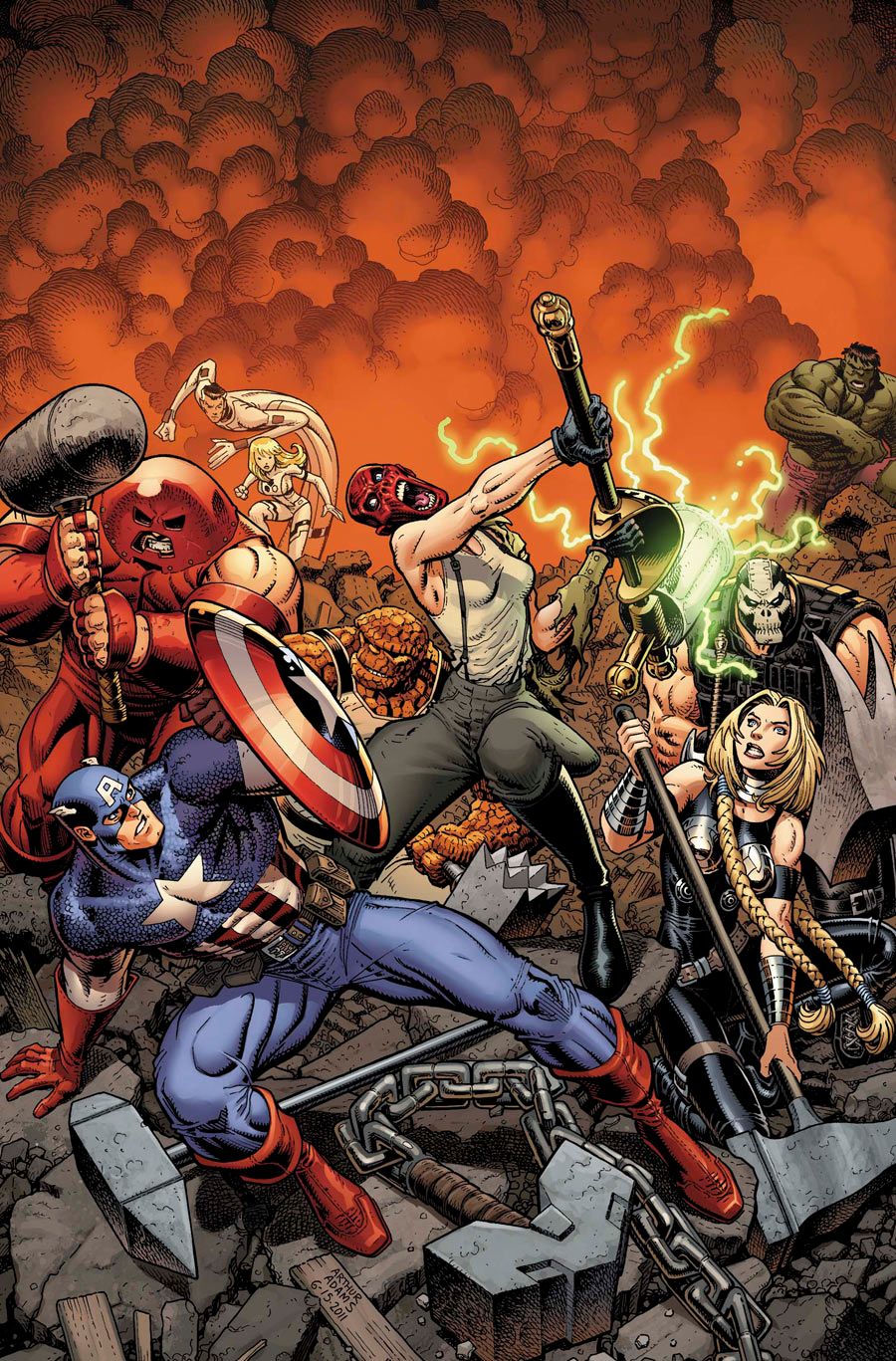If you were wondering what happened to the conclusion of "Fear Itself" over in the main series, well, look no further than this comic. The big unanswered question -- what became of the Worthy's Asgardian weapons -- is apparently going to be answered in these pages, as Valkyrie and Sin/The Red Skull each set out in search of them.
The notion of how much you'll enjoy this story seems to be strongly tied to that of how much you enjoyed the parent event. It's less a sequel, more a direct continuation, with one of the same major villains in play and similar Asgardian issues at its core. Whether that's a good idea, given the generally weak reception to "Fear Itself"'s core concept, is debatable -- but at least its execution is done well.
Written by Matt Fraction, Chris Yost, and Cullen Bunn (though scripted entirely by the latter), the first issue performs a decent job of explaining not only what the idea behind the series is, but why Valkyrie and Sin might care more than most about recovering the weapons. The former gets some particularly good moments as she locks horns with both Captain America and War Machine, her "Secret Avengers" colleagues, which makes you buy her as a protagonist, even though she's functioned mostly on the periphery in the past.
That said, the book has to contort itself a little to engineer these conflicts in the first place. Captain America has, admittedly, been through the wringer, but his patronizing and moralizing outbursts seem way, way out of character, particularly considering that the Avengers would have surely lost the battle had the Asgardians not come to their aid. It's okay for a character to act irrationally, but when that character is Captain America, it requires far more justification than we're shown here.
As well as three writers, the book also sports two pencillers: Paul Pelletier and Mark Bagley. Although there's enough of a difference in their styles to notice the presence of two artists, the book separates them out in a convincing manner, giving them material suited to their abilities. Bagley shines during the more conversational moments, giving them depth and intrigue, while Pelletier does his best work with the more action-centric material.
Indeed, there's very little the book does wrong. The problem, if any, is that it extends (and to some extent, repeats) the premise of "Fear Itself" beyond the point where one expects most readers will be interested in reading about it. Fans of Valkyrie will be justifiably thrilled with her emergence as a wildcard (and Bunn's handling of the character is by far the best reason to come back next issue) but on a conceptual level, the series struggles to evoke any feeling other than fatigue. Not necessarily the fault of the creators of this series, but unfortunately, something they'll have to deal with.

